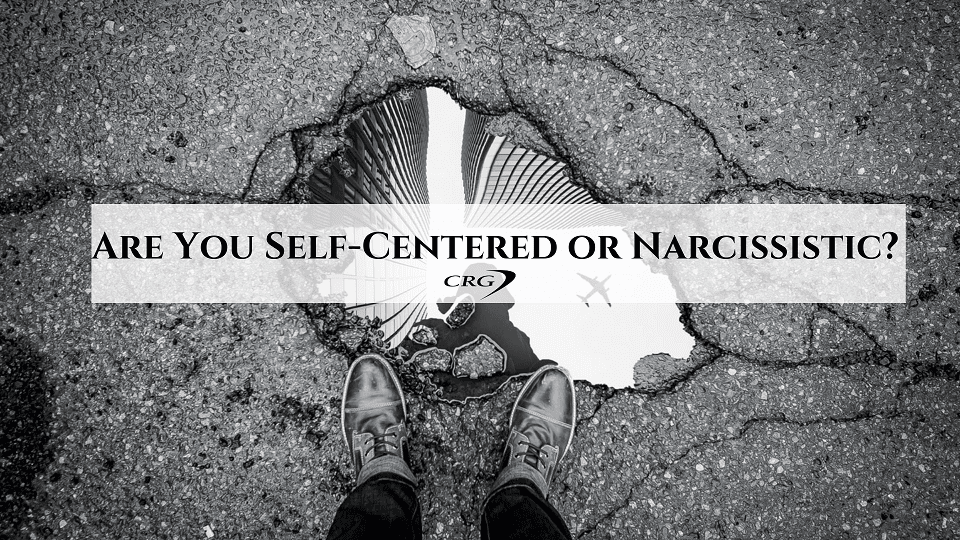Are You Self-Centered or Narcissistic?
Self-Centered: Independent of outside force or influence; concerned solely with one’s own desires, needs, or interests
Narcissism: A doctrine that individual self-interest is the actual motive of all conscious action; that individual self-interest is the valid end of all actions; love for one’s own body and appeal
Before you get defensive and claim that you’re neither self-centered nor narcissistic, I have a couple of stories and then a few questions for you.
Recently, I attended an event with about 12 participants. We were together for several hours, with plenty of time to connect and communicate. For me, one conversation was particularly interesting. I spoke with a gentleman for about two hours and noted that he did not ask me a single question about me or my background. While I was not personally offended, I was shocked to discover that he works as a local university professor who teaches communication skills! How could he be so oblivious?
Quite frankly, people’s natural tendency is to be self-centered and talk about themselves—some more than others—and this is also influenced by their Personal Style.
Focusing on others takes discipline and intentionality by developing emotional intelligence.
Think about your conversations over the past week. Did you dominate the discussion and talk about yourself, or did you ask questions of the person whom you were engaging?
Narcissism is a close friend of self-centeredness, though some professionals link it to overzealous self-esteem.
Regardless, according to several university-based psychologists, a significant percentage of our current generation—although wanted and loved by their parents—are absorbed by their own importance. They expect others to immediately fulfill their every wish and demand. The advent of social media has provided a platform for ranting about self-importance; for that generation, that value is becoming an accepted societal norm.
A recent survey established that 1 in 10 university students have a clinical condition called Narcissistic Personality Disorder, while only 3% of the over-65 age group has it. Unfortunately, people with the most extreme cases of narcissism usually won’t go for treatment. If they do agree to it, they are typically very difficult to treat. They have such inflated thoughts about themselves that they don’t believe a trained, experienced professional would have anything to offer.
To a certain extent, narcissism can help a person become happier and more successful. In more extreme cases, narcissism causes serious problems in relationships and careers.
What about you? Do you have a healthy view of yourself, or do you have self-centered or narcissistic tendencies?
There is a major difference between confidence and arrogance. Significant research shows narcissistic parents and childhood dynamics contribute to the condition; however, that should be used only as an explanation, not an excuse.
Take the survey below to determine how healthy or unhealthy your thinking and responses are to life’s events:
Are You Self-Centered or Narcissistic?
Do you have a healthy or an unhealthy view of life?
The following chart/survey will help you understand self-centeredness and/or narcissistic characteristics. Be honest with your responses.
In each item, simply select one of the two choices, HEALTHY or UNHEALTHY, that describes you best. If you are on the midline, where both HEALTHY and UNHEALTHY apply, split the points—give half a point to each choice. You can also use this list to evaluate others with whom you interact, to frame their tendencies.
*Please note: This short survey is for information purposes only. It is not intended to be diagnostic in nature. That said, your answers to the above reveal trends and truths in your life.
Your Responses:
- If you selected 9 or 10 HEALTHY responses, you are quite well adjusted. Keep focusing on your healthy choices and behaviors.
- If you selected 7 or 8 HEALTHY responses, you still have a balanced perspective with some tendencies toward self-centered behavior. Note where you can improve, then take proactive action.
- If you selected 5 or 6 HEALTHY responses, you have some areas where you could improve. I suggest you make a plan that includes addressing those areas of opportunity for development.
- If you selected 4 or fewer HEALTHY responses, that means you had 6 or more UNHEALTHY responses. When you decide to take action to address what is unhealthy in your life, there will be significant benefits to you and the individuals around you.
It’s time to assess the way your reactions and feelings in your life are affecting you and others. I encourage you to reach out to friends and/or professionals to guide you to a healthier mindset and choices.
I applaud you for being honest and vulnerable in your responses.
Now, let your honesty motivate you to take action!
- To assist you on your journey to healthier choices and relationships, clarify your values and style through CRG’s Values Preference Indicator (VPI) and the Personal Style Indicator.
- To help you understand your tendencies and become equipped to help people apply their strengths and realize their potential, read, Why Aren’t You More Like Me?™
- Do it now! Choose to develop yourself so you can reduce your tendencies to be self-centered. Create a new level of engagement where you are grounded. Making healthy choices will improve your life and the lives of all the people around you.
Until next time, keep Living On Purpose.
Ken Keis
Announcement
Why Aren’t You More Like Me?™, now in its 3rd edition, is soon going into its fifth printing. Order your copy now!
I encourage you to read my book, Why Aren’t You More Like Me?™. It’s one way you can start establishing a positive framework of the impact your Personal Style and personality are having on those around you.
Discover the Secrets to Understanding Yourself and Others!
Third Edition
by Ken Keis, Ph.D.

